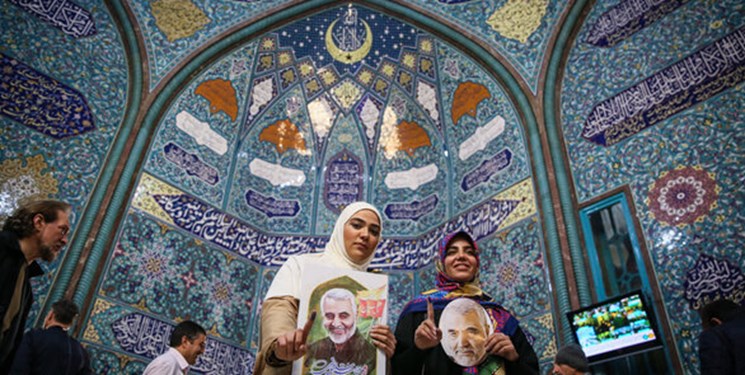IRGC Calls for People’s High Turnout in Friday Presidential Election
The Islamic Revolution Guards Corps (IRGC) in a statement called on the Iranians from all walks of life to take part in the upcoming presidential election, and said that every vote is tantamount to a missile on enemies' targets.

The IRGC described epic and huge participation of people in Iran’s presidential election on Friday as “guarantor of dignity, security, authority and prestige of the country in international arena that can foil malicious plots waged by enemies against the country”.
It pointed out that over the past 42 years, the heroic nation of Islamic Iran, in spite of the conspiracies and malicious deeds of enemies waged against Iranian people, have never made strategic and computational mistakes under the influence of media warfare and their psychological operations, specially in critical historical moments with their unique and unparalleled presence on the scene and have thwarted all conspiracies and plots of enemies.
“Election is one of these serious milestones that Iranian nation has always participated in this important event in line with elevating the authority and prestige of the Islamic Iran in international arena with their passionate and massive presence at the polling stations and have disappointed enemies in this way,” the IRGC’s statement added.
Iran will simultaneously hold the 13th presidential election and the 6th City and Village Councils Elections on June 18.
The election in which voters will pick a president for a four-year term will be held as the country is still grappling with the COVID-19 outbreak.
As stipulated in the Constitution, the President is elected for a four-year term by direct vote, and is allowed only two successive terms, although he can run for a third nonconsecutive term.
To run for president, a candidate must satisfy six key qualifications outlined in the Constitution, namely being an Iranian national and of Iranian origin, having “administrative capacity and resourcefulness” besides a good past record and the qualities of trustworthiness and piety. The President must also have a firm belief in the fundamental principles of the Islamic Republic of Iran and Islam, the official religion of the country.
Hopefuls need the approval of the Constitutional Council — a panel of six theologians and six legal experts — for running in presidential elections.
Presidents are elected with a majority of the vote. If no candidate manages to secure the threshold in the first round, a run-off is held between the two candidates that have received the most votes in the first round.
Under Article 113 of the Iranian Constitution, the President acts as the country’s chief executive and is responsible for implementing the law of the land “except in matters directly concerned with the office of the Leadership.”
Within the limits of his powers and duties, the President is responsible before “the people, the Leader, and the Islamic Consultative Assembly,” as the Iranian Parliament (Majlis) is formally called.
The President appoints ministers, subject to the approval of the Parliament.
The chief executive has the authority to sign agreements with other governments as well as those pertaining to international organizations, after securing parliamentary approval.
Ambassadors to other countries are also appointed upon the recommendation of the Foreign Minister and approval of the President, who also receives the credentials presented by the ambassadors of foreign countries.
The President is tasked with administering national planning, the budget, and state employment affairs.
In addition, he heads the Supreme National Security Council, which protects and supports national interests, the Islamic Revolution, and the country’s sovereignty and territorial integrity.
Meanwhile, the President serves as the chairman of Iran’s Supreme Council of the Cultural Revolution, a body set up after the 1979 Revolution to ensure the country’s education and culture remain Islamic and will not be influenced by other cultures and ideologies.







